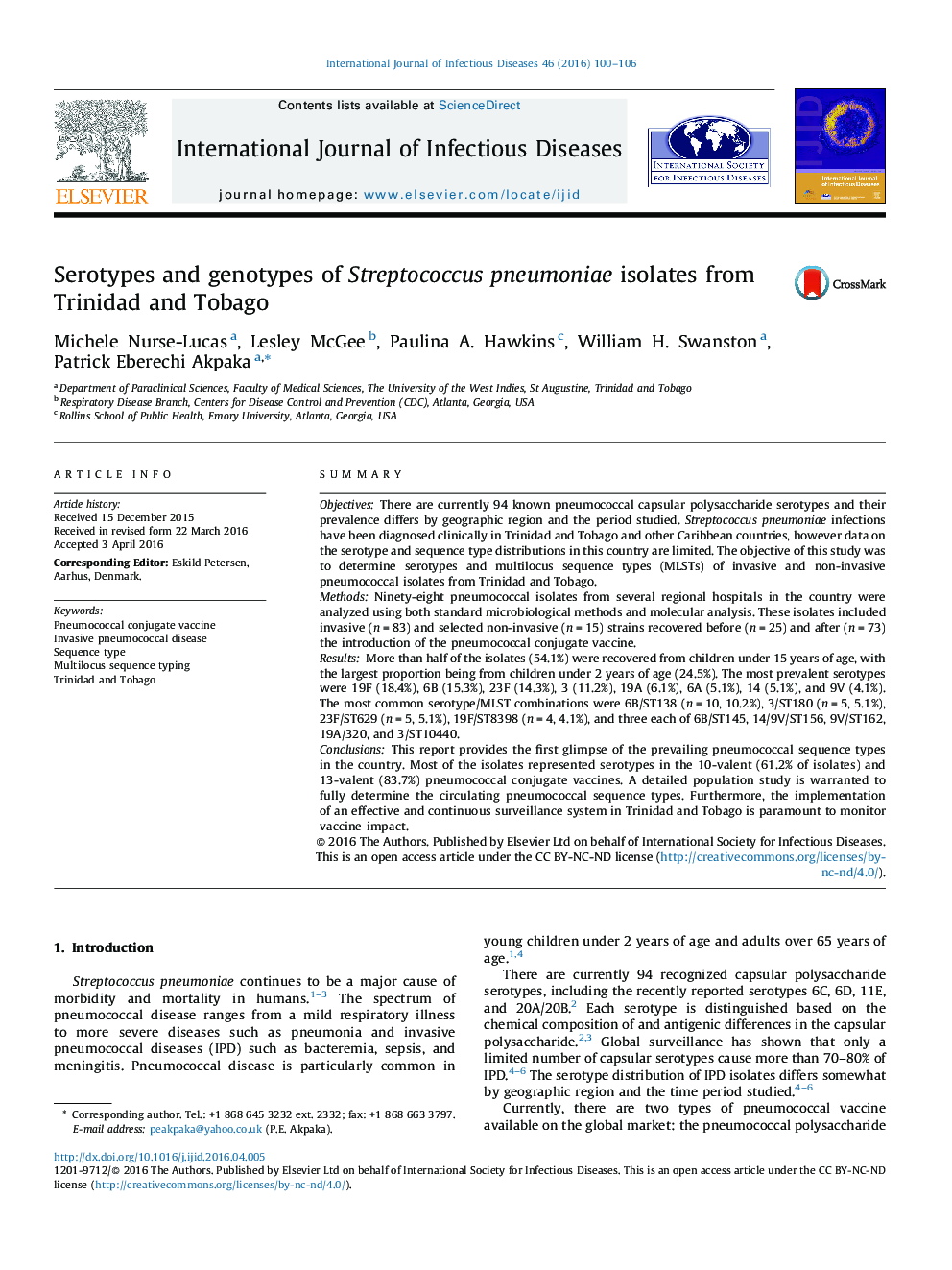| Article ID | Journal | Published Year | Pages | File Type |
|---|---|---|---|---|
| 3361659 | International Journal of Infectious Diseases | 2016 | 7 Pages |
•Most Streptococcus pneumoniae isolates were from blood, children under 2 years old, and were recovered after the introduction of conjugate vaccines.•Major serotypes detected were 19F, 6B, 23F and 3.•Fifty-six different sequence types (STs) were identified; predominant STs were ST138, ST145, ST8398, ST10440, ST320.•Some isolates were identified as being related to seven of the internationally described Pneumococcal Molecular Epidemiology Network (PMEN) clones.•The prevailing pneumococcal genotypes in the country reveals that both PCV10 and PCV13 provide good coverage.
SummaryObjectivesThere are currently 94 known pneumococcal capsular polysaccharide serotypes and their prevalence differs by geographic region and the period studied. Streptococcus pneumoniae infections have been diagnosed clinically in Trinidad and Tobago and other Caribbean countries, however data on the serotype and sequence type distributions in this country are limited. The objective of this study was to determine serotypes and multilocus sequence types (MLSTs) of invasive and non-invasive pneumococcal isolates from Trinidad and Tobago.MethodsNinety-eight pneumococcal isolates from several regional hospitals in the country were analyzed using both standard microbiological methods and molecular analysis. These isolates included invasive (n = 83) and selected non-invasive (n = 15) strains recovered before (n = 25) and after (n = 73) the introduction of the pneumococcal conjugate vaccine.ResultsMore than half of the isolates (54.1%) were recovered from children under 15 years of age, with the largest proportion being from children under 2 years of age (24.5%). The most prevalent serotypes were 19F (18.4%), 6B (15.3%), 23F (14.3%), 3 (11.2%), 19A (6.1%), 6A (5.1%), 14 (5.1%), and 9V (4.1%). The most common serotype/MLST combinations were 6B/ST138 (n = 10, 10.2%), 3/ST180 (n = 5, 5.1%), 23F/ST629 (n = 5, 5.1%), 19F/ST8398 (n = 4, 4.1%), and three each of 6B/ST145, 14/9V/ST156, 9V/ST162, 19A/320, and 3/ST10440.ConclusionsThis report provides the first glimpse of the prevailing pneumococcal sequence types in the country. Most of the isolates represented serotypes in the 10-valent (61.2% of isolates) and 13-valent (83.7%) pneumococcal conjugate vaccines. A detailed population study is warranted to fully determine the circulating pneumococcal sequence types. Furthermore, the implementation of an effective and continuous surveillance system in Trinidad and Tobago is paramount to monitor vaccine impact.
